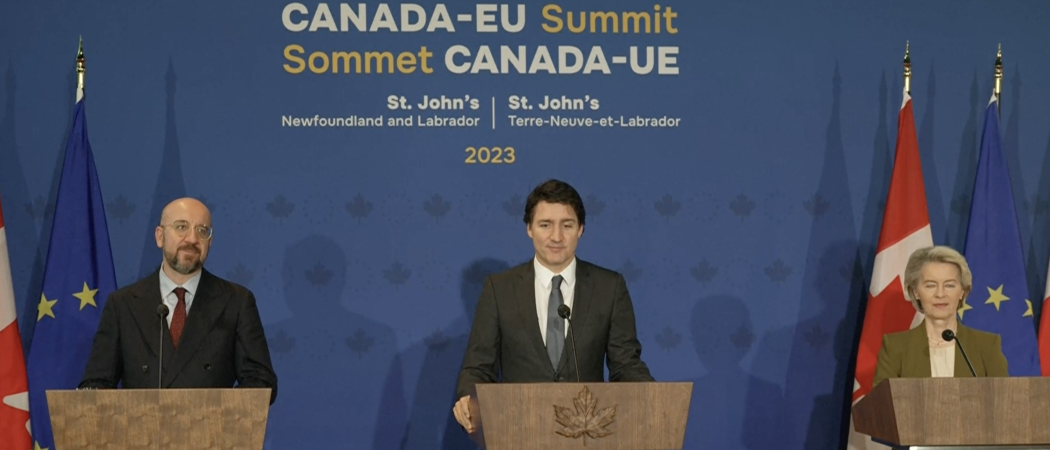The recent announcement by Prime Minister Justin Trudeau regarding the digital agreement with the European Union (EU) marks a pivotal moment in the advancement of digital identification systems and the concerted efforts to combat online misinformation.
Strengthening Bilateral Ties: Canada-EU Digital Partnership
Emphasizing the significance of collaboration, Trudeau unveiled the official terms of the Canada-EU Digital Partnership. This strategic initiative aims to establish digital credentials for Canadians while actively addressing the challenge of online disinformation. Moreover, it underscores a shared commitment to advancing artifical intelligence (AI) technologies.
A Collaborative Vision: Summit Highlights
Trudeau articulated, “When Canada and Europe work together, we create good, middle-class jobs, foster robust economies, and make substantial strides in combating climate change.” This sentiment echoes the core principles driving this monumental digital alliance.
The discussions surrounding this deal took place during the Canada-European Union Leaders’ Summit in St. John’s, Newfoundland. Notably, it involved comprehensive deliberations with European Union (EU) Commission President Ursula von der Leyen and EU Council President Charles Michel.

Collaborative Endeavors on Global Platforms
The agreement underscores the joint commitment of both Canada and the EU to actively participate and collaborate within various international cooperation forums. This includes but is not limited to, the G7, G20, OECD, UN, and WTO.
Digital Evolution: G20’s Endorsement
The Group of 20 (G20), comprising the world’s most influential nations along with the EU, has extended support to explore the development of a “digital public infrastructure.” This exploration encompasses digital identification systems and potentially, the establishment of a centralized digital currency.
Trudeau’s Global Alignment and Environmental Goals
Trudeau’s alignment with the goals set by the EU and the United Nations (UN) has been evident. This includes the Canadian government’s environmental objectives, which mirror the United Nations’ “2030 Agenda for Sustainable Development.” Notable goals include phasing out coal-fired power plants, reducing fertilizer usage, and curtailing natural gas consumption over the coming decades.
Digital ID Promotion Amidst Cautionary Perspectives
Despite the strides towards a digital identification system, concerns have been raised regarding the potential ramifications. Speculations about a social credit system, akin to the one utilized in Communist China, have emerged amidst the promotion of digital IDs.
Reflections from Past Events: Freedom Convoy Fallout
The apprehensions surrounding digital identity and currency find roots in past events. During the 2022 Freedom Convoy, Trudeau’s administration invoked the Emergency Act (EA) to dismantle the protest movement. Subsequently, Deputy Prime Minister Chrystia Freeland froze the bank accounts of individuals who supported the convoy, sparking controversy and widespread concerns.
Unveiling Concerns: Implications of a Digital Society
Critics, like LifeSiteNews correspondent David James, have expressed apprehension about the implications of a completely digital, cashless society. James highlighted the unprecedented financial control exercised by the government and warned against potential population enslavement through surveillance and transaction controll.
The recent digital agreement betwen Canada and the EU signifies a significant stride toward an interconnected digital future. However, it also demands a nuanced understanding of the potential ramifications and a vigilant approach to safeguarding individual liberties in the digital landscape.










